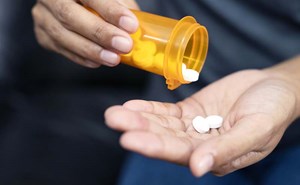As emergency physicians, you have undoubtedly treated patients suffering from opioid use disorder (OUD) in the emergency department (ED). Do you view a patient with OUD differently from your patient in the next room who may be experiencing a heart attack? Do you bring any pre-conceived notions to the table about why this patient may be seeking treatment from the ED (perhaps not for the first time)?
These can be difficult questions to ask yourself, but they are important to consider as we as a society continue to tackle the opioid crisis. Stigma unfortunately does exist in the treatment of patients with OUD, and ACEP has made it a priority to develop targeted solutions to limit the impact that stigma has on the care we provide to these patients. From a policy perspective, we have been pushing to eliminate numerous regulatory and administrative road blocks (such as the X-waiver requirement for prescribing buprenorphine)—that hinder your ability to appropriately treat patients with OUD and that directly contribute to misperceptions that exist around the disease.
However, more work needs to be done, and developing solutions requires partnerships with a variety of stakeholders impacted by stigma. In that spirit of collaboration, last week, ACEP hosted the Summit Addressing the Opioid Stigma in the Emergency Department. This event, which was funded by the U.S. Substance Abuse and Mental Health Services Administration (SAMHSA) as part of its Opioid Response Network, brought together diverse organizations and representatives to engage in a holistic, inclusive, and robust dialogue about this important issue. Participants included federal partners, medical professionals, and patient advocates, many of whom had personally experienced stigma when they sought treatment for OUD.
ACEP had ambitious goals for what we wanted to achieve at the summit, including identifying strategies and behaviors to reduce practices that perpetuate stigma in the ED and developing ideas for innovative solutions and recommendations for best practices and future research. As someone who personally attended the summit, I’m proud of the concrete progress we made in just one day.
For those of you who weren’t able to attend the summit and are interested in learning more stigma and ways to address it, ACEP plans to release a white paper that summarizes the discussion and outlines specific recommendations and a short video that highlights the impact stigma has on the treatment of patients with OUD. I will keep you all informed as these additional resources become available.
Until next week, this is Jeffrey saying, enjoy reading regs with your eggs!







